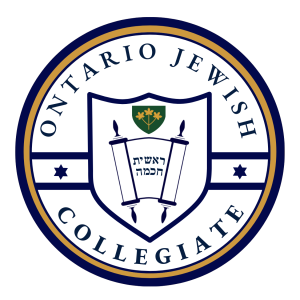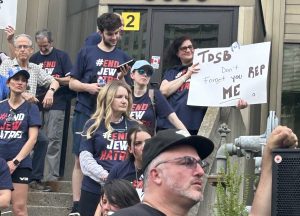Among the many powerful, inspiring concepts that course through our prayers and are fundamental to our beliefs, is the notion of the eternity of the Jewish people. Our sages conveyed this idea in countless poetic ways. One of the most succinct is the literal one: “l’dor vador” – from one generation to the next. The phrase, and variations of it, appear throughout our liturgy.
When we recite these words in synagogue, in a certain sense, we utter a public proclamation to God and to our fellow congregants that our connection – to God, to each other and to the Jewish people – is a commitment that is intended to last forever.
But there is a creeping sense of worry these days, more than merely an overcast sky on the horizon of the Jewish future, that the proclamation will not remain true in the years to come.
The question of why people should be Jewish, which has formerly been a polite entry point into a discussion about the grandeur and ennobling heritage of Judaism, is now increasingly being asked in stark, literal terms, especially among young adults in the United States.
Novelist and cultural icon Michael Chabon recently conferred his unique form of blessing upon this question in a commencement address he delivered at Hebrew Union College in Los Angeles. He referred to the marriage of one Jew to another Jew as a “ghetto of two,” “a gated community” and “a restricted country club.”
And thus, with the crisp, neat turn of the modernist’s phrase, the universalist mission that has been the guiding beacon for every generation of Jews since we gathered as a frightened but stubborn mass at the foot of Mount Sinai has now been reduced to a matter of lifestyle and convenience.
That the question is being asked at all – and that it is now being posed more and more in the mainstream, rather than at the margins – is deeply
troubling.
Among the worried individuals is Andrew Silow-Carroll, the editor-in-chief of JTA. He recently provided a partial response to Chabon in an op-ed titled, “The non-misogynist, non-hypocritical case for Jewish continuity. With music.”
“The goal (is) not to shame people into sticking with the tribe,” Silow-Carroll wrote, “but to identify and promote what it is about Jewish life that is worth preserving in the first place: a textual inheritance; a particular moral and ethical language; a series of distinct and meaningful rituals; a living awareness of a Jewish past, in all its glories and horrors; a profound sense of connection with people who share that story.
“That’s not tribalism; that’s not bubbe saying she’ll sit shiva if you marry out. That’s a deep kind of cultural engagement that even Chabon should appreciate.”
He’s right: among the many tasks for our generation is to facilitate and stimulate a curiosity for that “deep cultural engagement” within the next generation. In an open, affluent, free, choice-laden society such as ours, that is not always easy to do. But we must.
The phrase “l’dor vador” is prescriptive. It falls upon all of us – institutions and individuals – who regard “l’dor vador” as words of active obligation, to actually do something to help make it true for tomorrow, as well as today.
That “deep kind of cultural engagement,” of which Silow-Carroll has written, is best reached through Jewish literacy.
That means that young Jews must be familiar with, and even knowledgeable of, the defining points of our peoplehood: faith, traditions, values, history and language. And that means that the older generation must facilitate that familiarity and knowledge to the younger generation – l’dor vador.
READ: THE GHOST IN THE NAZIS’ WELL-OILED MACHINE
The best way of raising and fostering knowledgeable Jews is through intensive Jewish education. That is this generation’s ongoing responsibility.






